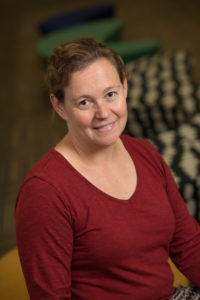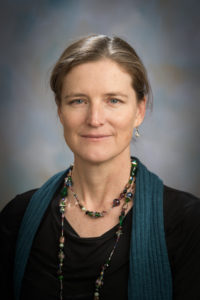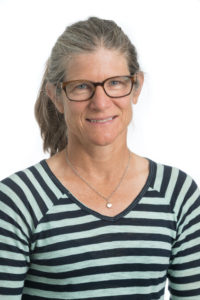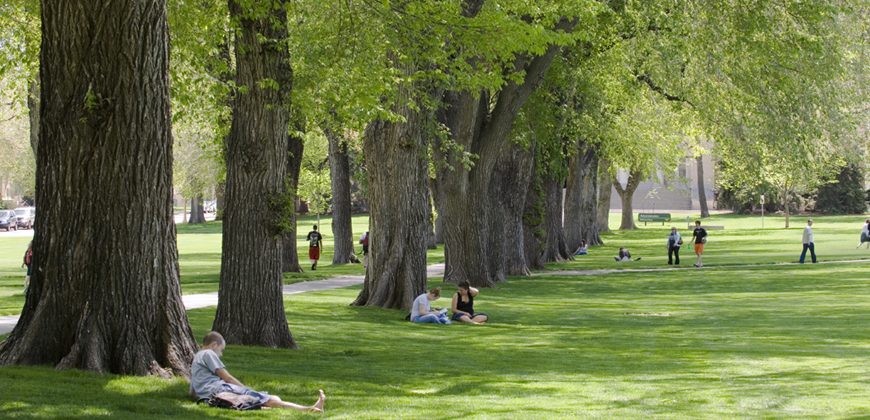A new “mentoring circles” program intended for women faculty is being launched this month at CSU.
The program, “ENCIRCLE” (for mENtoring CIRCLE), was formed by a subgroup of the Standing Committee on the Status of Women Faculty to enhance existing support networks.
Mentoring circles are small groups of faculty members representing different departments, career stages and experiences, who meet on a regular basis to discuss shared topics of interest under the guidance of a trained facilitator. ENCIRCLE will meet once a month for 90 minutes, starting Nov. 27. Other sessions are scheduled for Dec. 11, Feb. 12, March 12 and April 9.

CSU President Tony Frank created the standing committee in 2014, charging it with designing strategies and promoting activities that enhance gender equity and the status of women faculty. The committee issued a report on its study in spring 2017.
Improving connections
ENCIRCLE will feature support for career advancement and work-life balance, discussions on professional development, intellectual feedback, professional feedback and a sense of support and belonging.
“When you feel more connected, you are more productive, active and engaged,” said Ruth Hufbauer, who, along with Monique Rocca and Christine Olver, spearheaded the creation of the mentoring program. All three are faculty members serving on the Standing Committee on the Status of Women Faculty.
Session topics
Many topics will be covered in the new monthly ENCIRCLE mentoring sessions for women faculty at CSU. They include:
- Climate and culture in the workplace
- Balancing life and work
- Women helping women succeed
- Professional advancement: tenure and/or promotion
- Collaboration between junior and senior faculty members
- Administrative processes
- Working with today’s student population
- Balancing productivity in research with service
- Getting respect in the classroom
- Managing difficult colleagues
- Feminist Fight Club tactics
Rocca, who led the subgroup, explained that while many women faculty receive mentorship within their units, this type of mentorship is often purely professional in nature. Some, she added, may feel isolated if the department has a small number of women. Olver noted that ENCIRCLE will provide women faculty with a safe place to discuss departmental politics, for instance, without fear of repercussions.
Challenges for women faculty
Women faculty can encounter gender biases long before they earn their degrees. For example, in grading math assignments in elementary school, research shows that if teachers know the gender of the student, boys’ grades are inflated and girls’ grades are reduced, while if the gender is not known, they score equally. According to another study, when looking into graduate school, faculty respond to emails from men at a higher rate than women in most disciplines.

Student perceptions of men and women also differ — research shows that students score teachers with names identifying them as men higher than those with names identifying them as women, even if it is actually one and the same instructor. These biases continue in the letters of recommendation used in job and promotion/tenure applications.
Overall, these and other biases add up over time, Hufbauer said, and help explain why in most fields, there are fewer women faculty than men faculty, and fewer women of high rank. And it’s not just men being biased against women — women also have their own biases against themselves, she explained.
“The challenges that women of color and LGBTQ women face are even bigger than those that straight, cisgender, white women face,” Hufbauer said.
Benefits of mentoring circles
Mentoring circles can’t negate those cultural biases, she added, but they are known to improve connection to the workplace and job satisfaction in general. Along with those things come excellent research and teaching, and that leads to promotion and recognition in general.
Research has shown that mentoring circles in institutions of higher education create job satisfaction, provide support and a sense of belonging, support tenure and promotion, and help members feel comfortable in the higher education profession. Mentoring circles that integrate faculty from across the university are likely to spur relationships and collaborations, which in turn can facilitate interdisciplinary scholarship and nurture best practices for supporting women.

In some topic areas, more senior participants may have sage advice to share with the more junior members, Rocca explained, whereas in other areas, junior women may have different perspectives and ideas to benefit the more senior members. The value of a mentoring circle is that everyone mentors each other.
A total of 36 slots are open for the first round of ENCIRCLE meetings (three circles of 12).
Applicants select their preferred meeting times as part of the five-minute application process, and commit to attending all five meetings. Applications can be completed online before Nov. 13. Those who can’t commit for this year’s sessions, or who apply after all 36 slots are filled, can complete the application process for priority enrollment next year.
“We will evaluate our success at the end of the academic year to build and grow the program,” Rocca said. “If it proves to be a successful model, the University may want to expand it.”
ENCIRCLE is jointly funded by the Standing Committee on the Status of Women Faculty and the Office of the Vice Provost for Faculty Affairs.
Questions about ENCIRCLE can be sent to Rocca at Monique.Rocca@ColoState.EDU.
